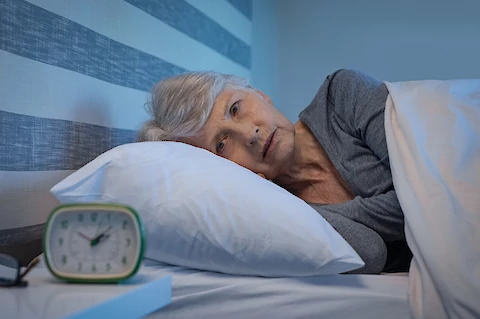
Our golden years can bring about several changes, one of which is our sleep patterns. As we age, it's not uncommon to experience shifts in our sleep routines Perhaps you've noticed waking up earlier or finding it more difficult to fall asleep at night. But what lies behind these changes, and how can they affect our overall health? More importantly, what steps can you take to combat these challenges and restore your healthy sleep habits?
In this blog post, we'll demystify the science of sleep, exploring why and how sleep patterns often shift as we grow older. We'll also discuss the common sleep-related concerns that many seniors face, from fragmented sleep to insomnia. This information is vital for understanding not only what is happening but also for finding effective solutions to ensure optimal rest.
Remember, quality sleep is essential to health, no matter your age.
The Science of Sleep
Sleep is more than just a period of rest. It's a complex biological process in which your body works to restore and rejuvenate various functions, from the immune system to memory consolidation. A typical sleep cycle involves several stages, including light sleep, deep sleep, and REM sleep, each playing a pivotal role in maintaining overall health.
Common Changes in Senior Sleep Patterns
As we age, our sleep architecture—the structure and pattern of our sleep—undergoes several alterations. Our body produces less melatonin, the hormone that regulates sleep, leading to a shift in our internal body clock. Consequently, many seniors tend to sleep and wake earlier.
One of the most common sleep-related challenges seniors encounter is fragmented sleep—waking up frequently throughout the night. This prevents them from progressing through the necessary sleep stages and can leave them feeling unrested upon waking.
Another common challenge is insomnia, characterized by persistent difficulty in falling asleep, staying asleep, or waking up too early. This can lead to daytime sleepiness, fatigue, and mood disturbances.
These changes not only affect the quality of life but are also associated with a range of health concerns, from cognitive decline to an increased risk of falls.
Practical Tips for Adjusting to Sleep Pattern Changes
Adapting to these changes requires a multi-faceted approach. First, maintaining a consistent sleep schedule can reinforce your body's natural sleep-wake cycle. Consider going to bed and waking up at the same time every day, even on weekends.
Second, creating a sleep-friendly environment can have a significant impact. Ensure your bedroom is dark, quiet, and cool. Consider using earplugs or a white noise machine if needed. Optimize your sleeping space for comfort and serenity.
Lifestyle changes such as regular exercise, a balanced diet, and limiting caffeine and alcohol consumption can improve the quality of sleep. But steer clear from vigorous workouts close to bedtime, as it might hinder your ability to fall asleep.
Don't be afraid to ask for expert help. If changes in sleep patterns are causing distress or affecting daily life, it might be beneficial to seek assistance from a healthcare provider or a sleep specialist.
How We Can Help
Understanding changes in sleep patterns with age is essential to maintaining health and well-being. While these changes may seem like a lot to manage, with the right strategies and assistance, you can adjust to them and continue to enjoy restful, rejuvenating sleep.
If you or a loved one in the Jacksonville area, including Arlington, Ft. Caroline, San Marco, or Fernandina Beach are struggling with sleep changes, contact us at Senior Helpers Jacksonville. Our team of compassionate caregivers can help establish routines, create a sleep-friendly environment, and assist with lifestyle changes to promote restful sleep.
We're more than just professional in-home caregivers. We're committed companions, ready to ensure you or your loved ones can enjoy independent lives in health and comfort.